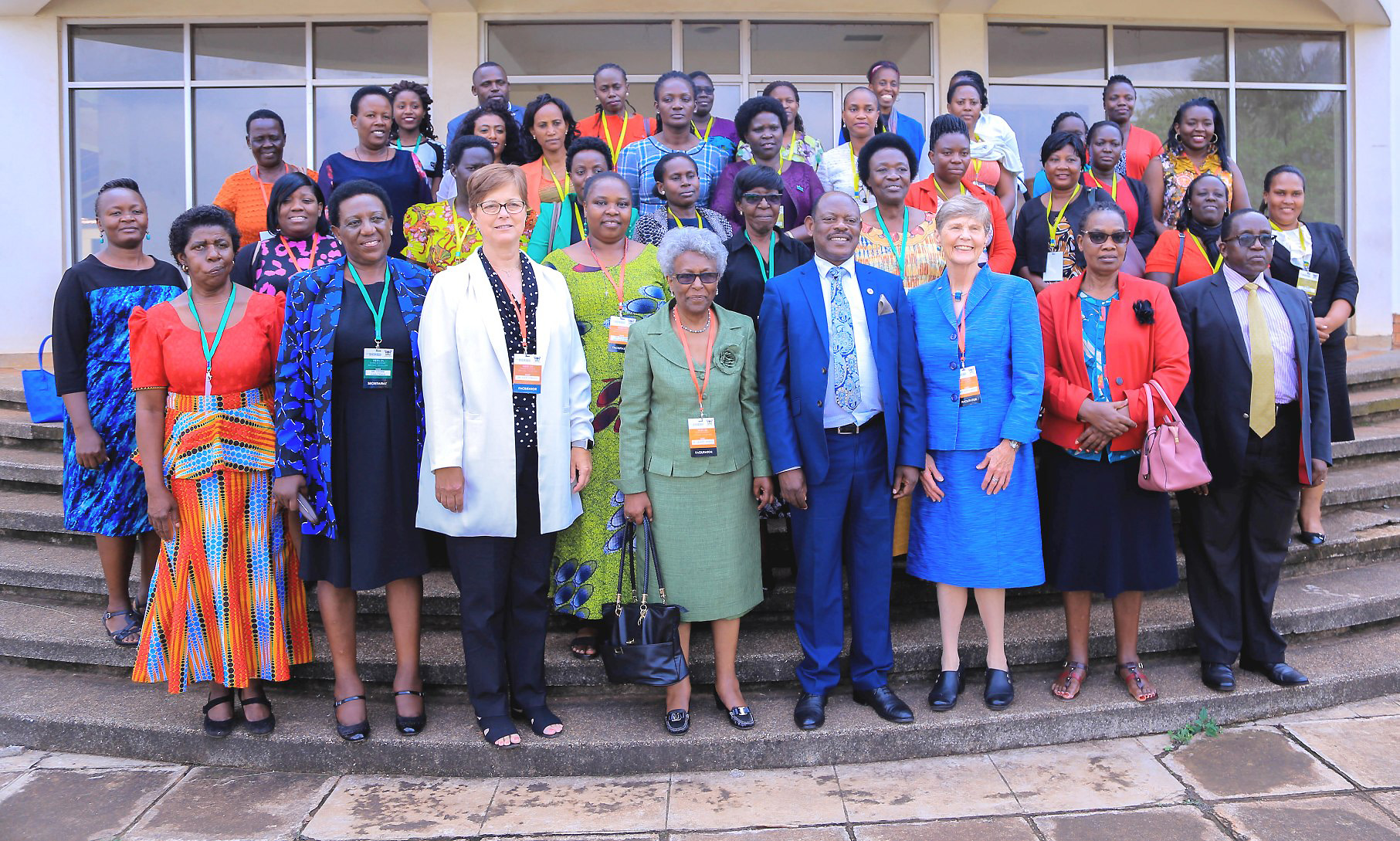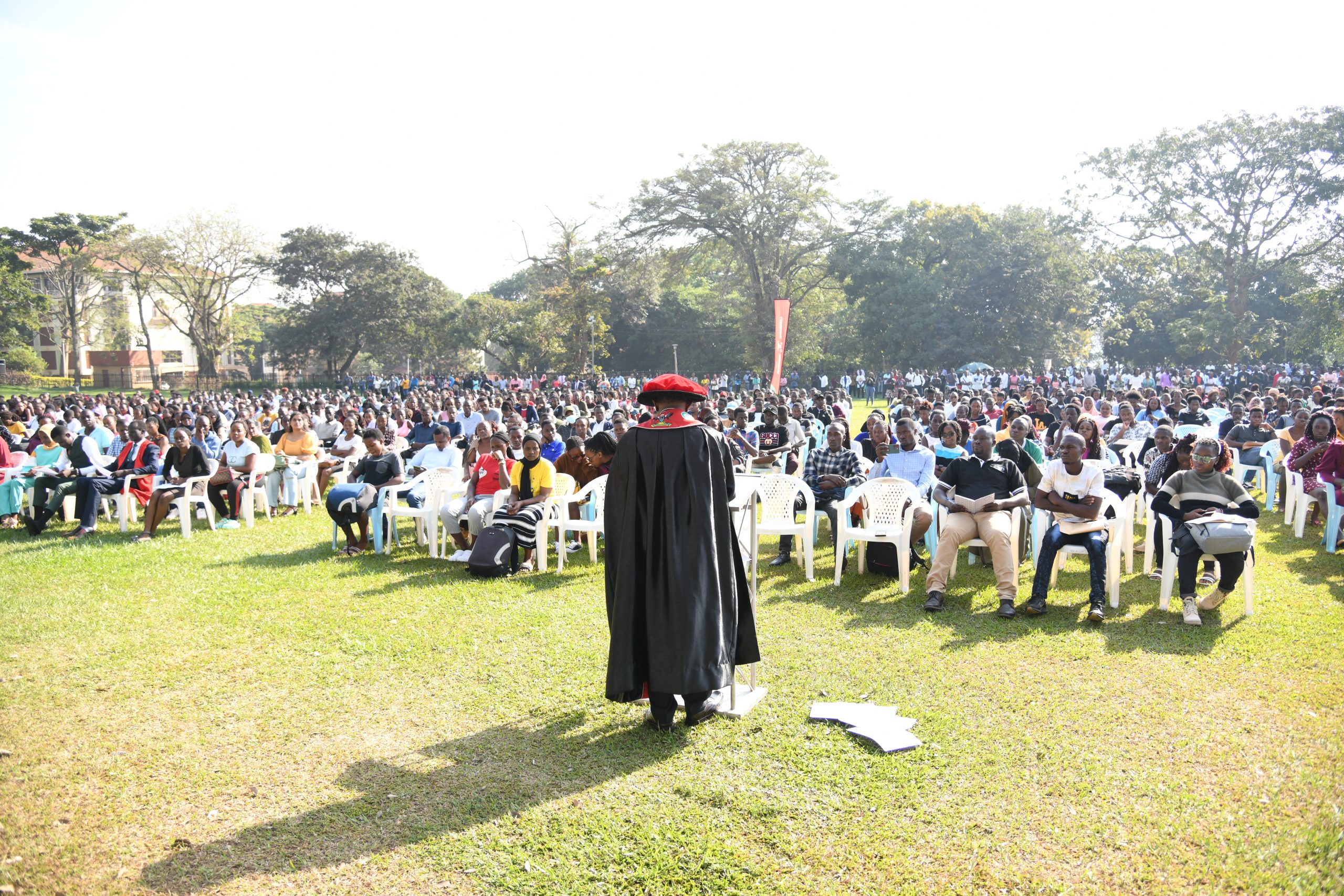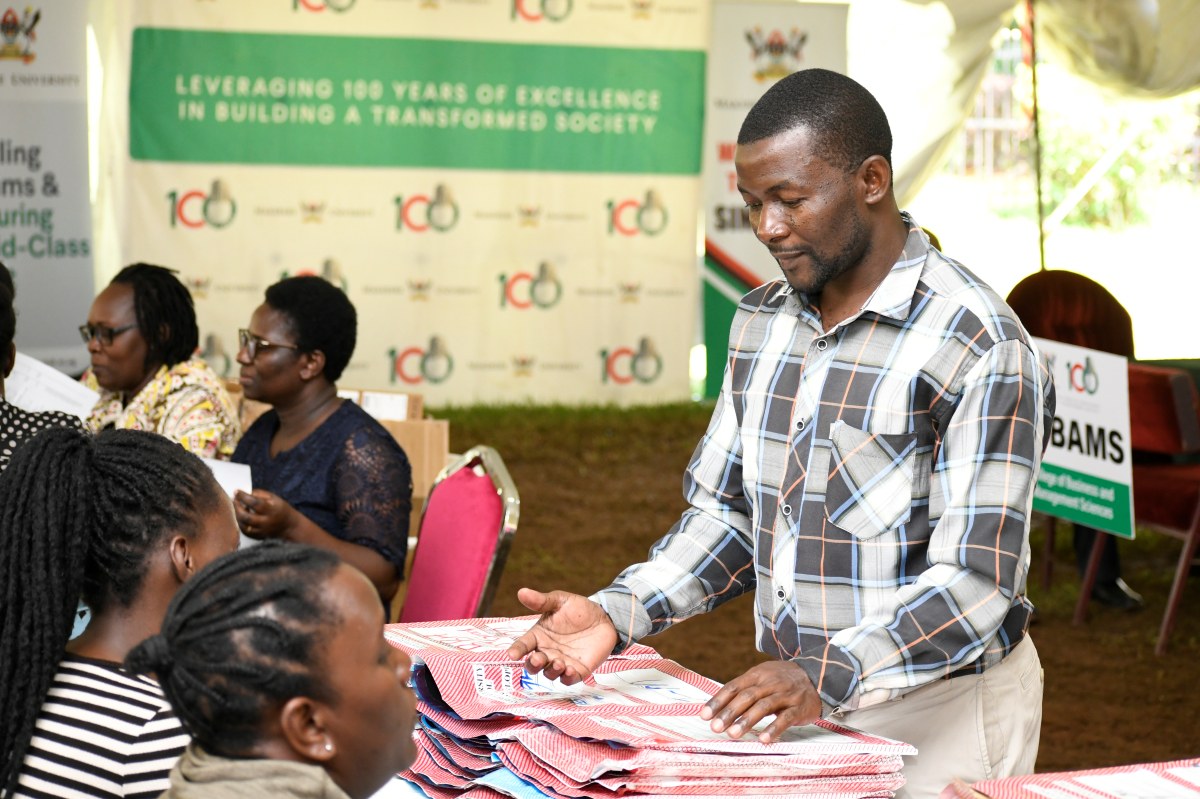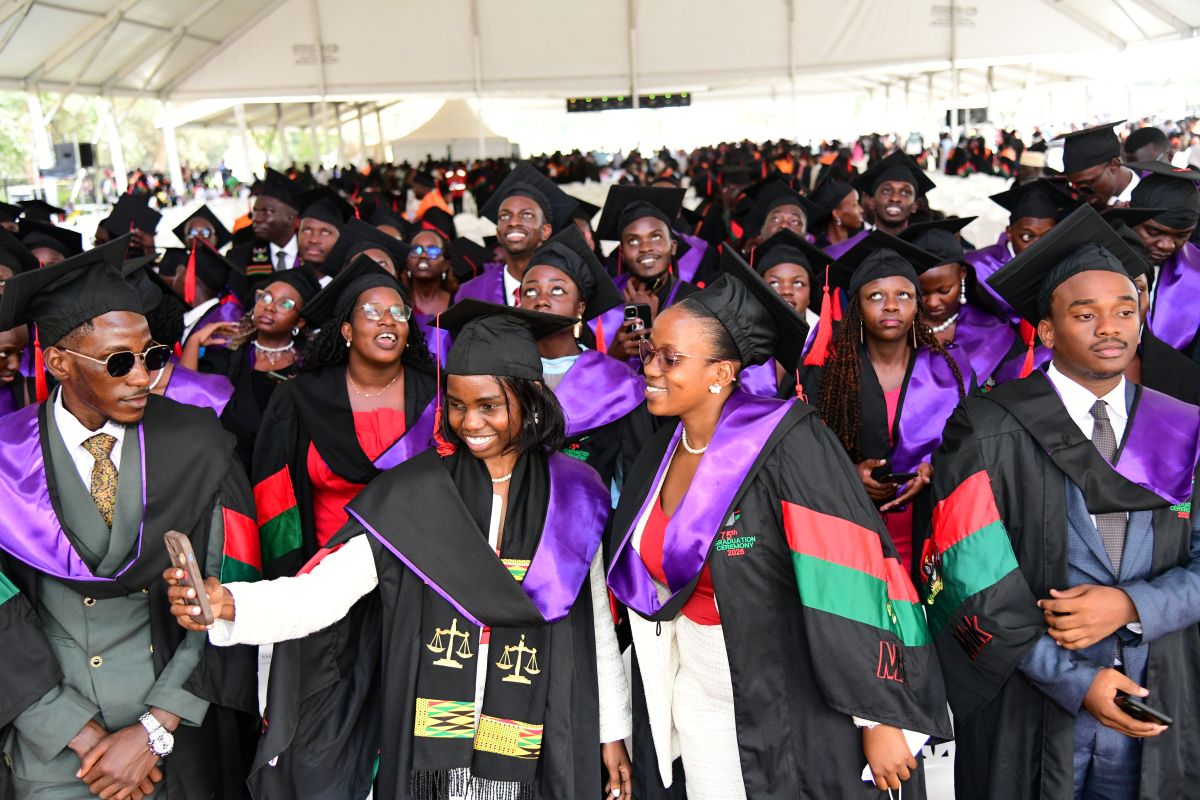The Higher Education Resource Services-East Africa (HERS-EA) Third Academy got off to a flying start on Monday, 1st July 2019 with women leaders drawn from various institutions in Uganda and abroad being urged to let go of all burdens so as to soar professionally and academically. Set to be held under the theme: Enabling you soar to new heights, the week-long academy got off with an opening ceremony presided over by the Vice Chancellor, Makerere University, Prof. Barnabas Nawangwe and a keynote address delivered by Prof. Judith White, Former President and Executive Director, HERS-USA.
Welcoming participants and facilitators to the opening ceremony, HERS-USA Alumnus and HERS-EA Coordinator, Ms. Naomi Lumutenga could not help but express the inner joy that came with holding the Third Academy. This, she noted, was a giant leap forward from the humble beginnings of the East Africa Chapter in 2014 as an affiliate of HERS based in Denver, Colorado, USA.
HERS-EA provides intensive residential leadership and management development training focused on women, mainly in higher education institutions and administration. “This week, you will listen to presentations by seasoned women who have a wealth of knowledge and experience but above all else, they are willing to share it freely” added Ms. Lumutenga.
The HERS-EA coordinator further urged participants to view the Academy as a space to develop ‘take home’ skills as well as think through a leadership project, which will be nurtured and refined at the Academy and hopefully, be implemented at their home institutions. “To help you keep record of this, you will be issued with a journal to use during the week and we hope that you will continue to update it when you leave the Academy.”
The curriculum for the Third Academy will be broken down into the three main areas of; Institutional Development which will cover managing and leading change among other topics as well as Personal Development with topics such as professional women’s economic empowerment through enterprise development and management for profit maximization. The curriculum will thirdly cover Networking, with sessions on personal growth and professional development and many others.
Addressing the gathering, the Chairperson HERS-EA Dr. Ruth Muwazi whose enthusiasm outweighed the fact that she had retired from Makerere University service in 2018, shared that her organisation was committed to raising the proportion of women in leadership and managerial positions in Higher Education Institutions, the same way she and a few others were empowered.
“We want to be a resource for developing women leaders in Higher Education and other Institutions” she enthused. “Our HERS cohort that trained in South Africa was helpless until Prof. Margaret Khaitsa, Dr. Florence Wakoko-Studstill and Ms. Naomi Lumutenga came along and brought us together to form HERS-EA. I may be a little soft spoken but HERS has taught me that no matter what your character is, you are a fighter” added Dr. Muwazi in encouragement.
Delivering his address at the Third Academy, the Vice Chancellor, Prof. Barnabas Nawangwe thanked Prof. Judith White, Amb. Dr. Gennet Zewide, from Ethiopia, and other facilitators for flying thousands of kilometres to Uganda, so as to empower women leaders in higher education at no cost.
“I also thank Prof. Margaret Khaitsa, Dr. Florence Wakoko-Studstill and Ms. Naomi Lumutenga for being patriotic by leaving the comfort of the Diaspora in the USA and UK to come to their roots and empower women leaders and contribute to socioeconomic transformation in East Africa” added Prof. Nawangwe.
The Vice Chancellor noted that more than thirty years ago, Makerere University took the step to address gender imbalance at the institution by introducing affirmative action, which awarded an additional 1.5points to females who qualified for admission.
“When I came to Makerere University there was no female member of staff and only one female student in the then Faculty of Technology” noted the Vice Chancellor, adding that ratios had significantly improved since then.
“We have therefore made a contribution to addressing the gender imbalance not only at Makerere University but also the entire country. It is not an easy task to erase the injustices of gender imbalance that have been practiced over time but we are aware that we need to do more and are committed” added Prof. Nawangwe.
He further reassured HERS-EA of Makerere University’s support in as far as training women leaders for socioeconomic transformation is concerned. “The only way we will emancipate our people from poverty is by ensuring that the gender that makes up the majority of our population is empowered to make a greater contribution to our countries’ economic development.”
Kicking off her address, the energetic Prof. Judith White who made use of a number of props shared that there was no better way to commemorate one year since retiring as Executive Director of HERS-USA than to deliver the keynote at the HERS-EA Third Academy hosted by Makerere University.
“Today we have an incredible assembly of wonderful women. You all come with a story of what empowered you and HERS will give you a chance to think about how to exercise leadership in the institutions you come from; you are now part of HERS’ soaring sisterhood” exuded Prof. White.
Prof. White’s keynote address then took on a historical tone for she deemed it was important that “we all need to think about our relationships in terms of history.” She then took her audience back to 1972; a turning point in her life marked by three events namely; the passing of Title IX, the founding of HERS and her graduation from Princeton University.
The passing of Title IX; a comprehensive federal law that prohibits discrimination on the basis of sex, as part of the education amendments of 1972 in the USA mandated the delivery of education to women such as Prof. White and people of colour. As such, she was able to ‘legitimately’ graduate along with the last group of men in the hitherto male-dominated graduation since the University’s founding in 1746.
Citing Women of influence, Women of vision: a cross-generational study of leaders and social change by Astin Helen and other authors, gave a sneak peek into the categories of women such as; Instigators and Inheritors whom she would expound more on during her sessions on Personal Development. She then went on to share some valuable lessons learnt over thirteen years of interaction with over two thousand women at HERS.
“You have to be strong” she started off, before quickly adding. “Make sure that you are using your strengths in ways that you want or else others will use your strengths in ways that they want.”
“Soaring takes sight” she continued on to the second lesson. “Soaring takes vision, insight and foresight. Whatever goes up does not stay up forever; it must come down. Plan for a soft landing: you don’t plan for if it happens; for it surely will, plan for when it happens. You want to always have a soft landing”
She then went on to tackle the third and possibly most important lesson. “Flight takes lightness; a lightness of spirit. You will have scars, sad moments and feeling that you have been let down, betrayed and not properly appreciated. The best way to stay light, to take the burden away is to share. Find other women with whom to soar… it is by finding strong women to surround yourself with that you will soar,” concluded Prof. White, the audience simultaneously according her rapturous applause.
The barriers to female advancement in higher education are not the preserve of developing countries. Nevertheless factors like strong cultural influence, segregation according to caste, socioeconomic background and institutional biases make them more endemic in Africa and Asia. There was therefore no better candidate to deliver a presentation on the aforementioned than Amb. Dr. Gennet Zewide, who has in the past served as Ambassador of Ethiopia to India; Chair Forum for African Women Educationalists (FAWE) and Minister of Education for Ethiopia.
Dr. Zewide whose PhD focused on the impact of education on women appreciated the role of FAWE in mentoring her as a female professional and underscored the importance of successful senior career women in uplifting their junior peers. She noted that the mindset of women not being decision makers was so entrenched in society, that in her personal experience, she rejected the first callup to serve as Minister of Education for Ethiopia, only agreeing after a few weeks of dealing with her deeply rooted fears. She went on to serve as Minister for thirteen years between 1992 and 2005.
Citing the caste system of India the former Ambassador of Ethiopia to India from 2006 to 2016 observed that women in certain jurisdictions face even greater barriers in advancement in higher education due to belonging to particular certain caste. She noted that it is important that affirmative action trickles even further down in such societies.
Borrowing from personal experience as a former academic and mother, she shared that society unknowingly expects women to not only perform as per their job descriptions but to also excel in order to be recognized. “As a mother, I had to bring my two daughters to my workplace whenever I had classes to teach in the evening and keep checking that they were doing their home work. I also had negotiated with students of my early morning classes to push them into mid morning because as a mother, I could not make it to work early enough!”
Dr. Zewide therefore urged the women to use their job placements to break the stereotypes of men as sole breadwinners and women as only being capable of home keeping. “I found it hard to convince my daughter who was in Grade 3 at the time that I had to work because her school textbooks portrayed women solely as the nurses, maids, cleaners and not bread winners. As soon as I became Minister, I made sure that this stereotype was changed in our children’s textbooks.”
Makerere University enjoys a good reputation as the champion of gender mainstreaming in the region. Delivering a presentation on Gender Mainsteraming: Situation analysis of the host university, the Director Gender Mainstreaming Directorate (GMD), Dr. Euzobia Mugisha Baine shared that Makerere’s first women studies programme was launched in 1991. This was however not without incidence as the first cohort was constantly asked why they were studying women.
Dr. Mugisha Baine however noted that rather than offend, this lingering question brought to light the need to progress from simply teaching and conducting research about women and gender to promoting gender equality and women’s empowerment in Makerere University.
“The Gender Mainstreaming Programme was approved by Senate and Council in 2001 and since 2000, institutionalization of gender as a cross cutting theme, has been a priority area in the University’s Strategic Plans” added Dr. Mugisha Baine.
On the research and innovation front, the Director noted that Makerere’s Gender Mainstreaming Programme (GMP) supports gender focused research and publications. She noted that although publishing in high impact journals lends credence to Makerere as an academic institution, research that leads to socioeconomic transformation was increasingly being promoted as part of institutional relevance to society. “This is where our Gender Mainstreaming Programme links up well with the HERS-EA model to bridge the gap between women in higher education and those at the grassroots.”
Dr. Mugisha Baine further noted that Makerere University was one of the institutions that was compliant with the Public Finance, Management Act because it is keen on addressing gender and equity concerns in the budget making processes. “We however have to go beyond simply budgeting and ensuring that gender-specific interventions are seen to their successful end.”
The HERS-EA Third Academy will run until Saturday, 6th July 2019, where participants will on the final day of training, be tipped on the how to land that much-desired job.
Article by Public Relations Office.
Please see Downloads for the presentations


 General6 days ago
General6 days ago
 General1 week ago
General1 week ago
 General2 days ago
General2 days ago
 General2 weeks ago
General2 weeks ago
 General1 week ago
General1 week ago


